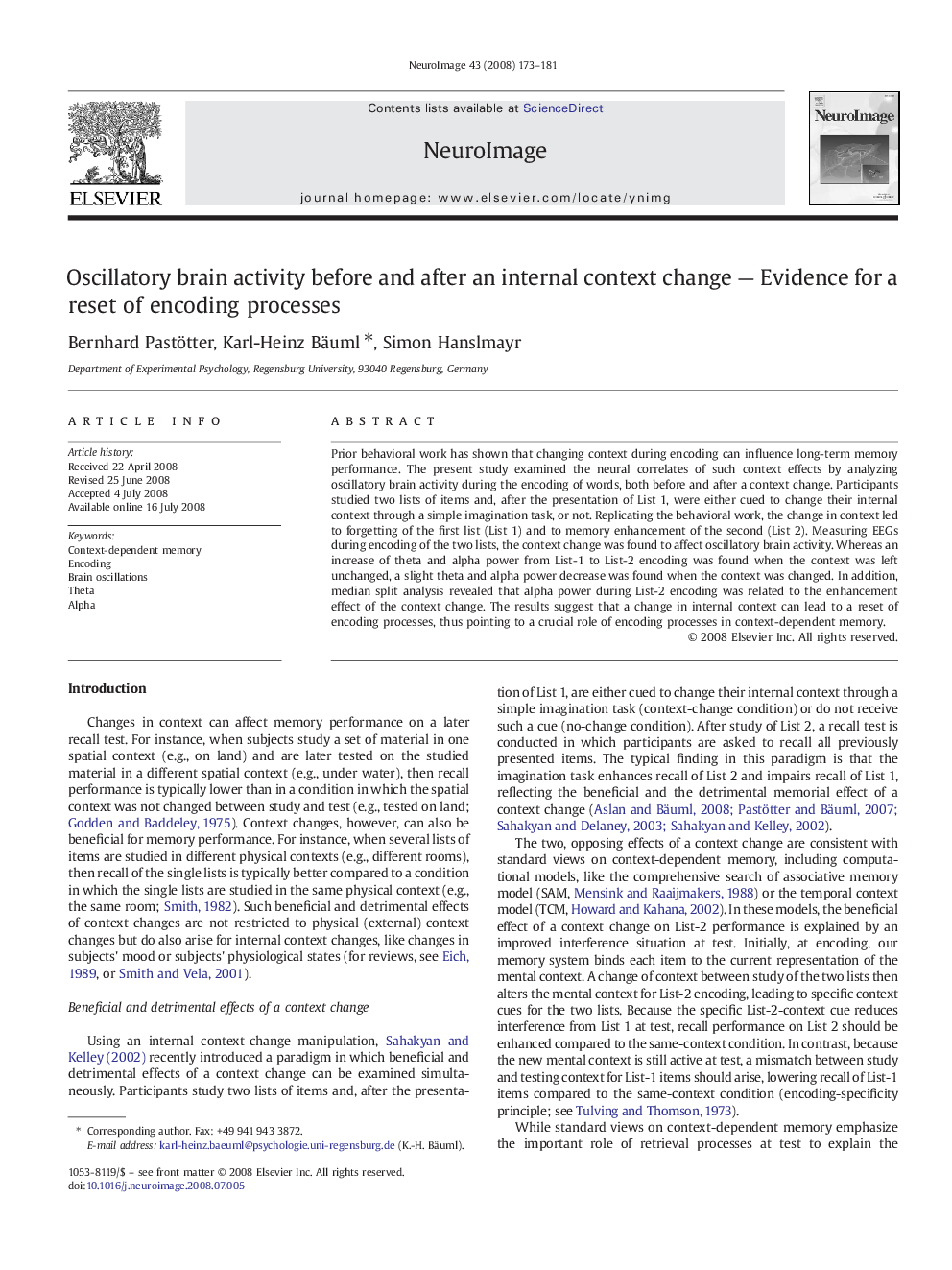| Article ID | Journal | Published Year | Pages | File Type |
|---|---|---|---|---|
| 3072807 | NeuroImage | 2008 | 9 Pages |
Prior behavioral work has shown that changing context during encoding can influence long-term memory performance. The present study examined the neural correlates of such context effects by analyzing oscillatory brain activity during the encoding of words, both before and after a context change. Participants studied two lists of items and, after the presentation of List 1, were either cued to change their internal context through a simple imagination task, or not. Replicating the behavioral work, the change in context led to forgetting of the first list (List 1) and to memory enhancement of the second (List 2). Measuring EEGs during encoding of the two lists, the context change was found to affect oscillatory brain activity. Whereas an increase of theta and alpha power from List-1 to List-2 encoding was found when the context was left unchanged, a slight theta and alpha power decrease was found when the context was changed. In addition, median split analysis revealed that alpha power during List-2 encoding was related to the enhancement effect of the context change. The results suggest that a change in internal context can lead to a reset of encoding processes, thus pointing to a crucial role of encoding processes in context-dependent memory.
